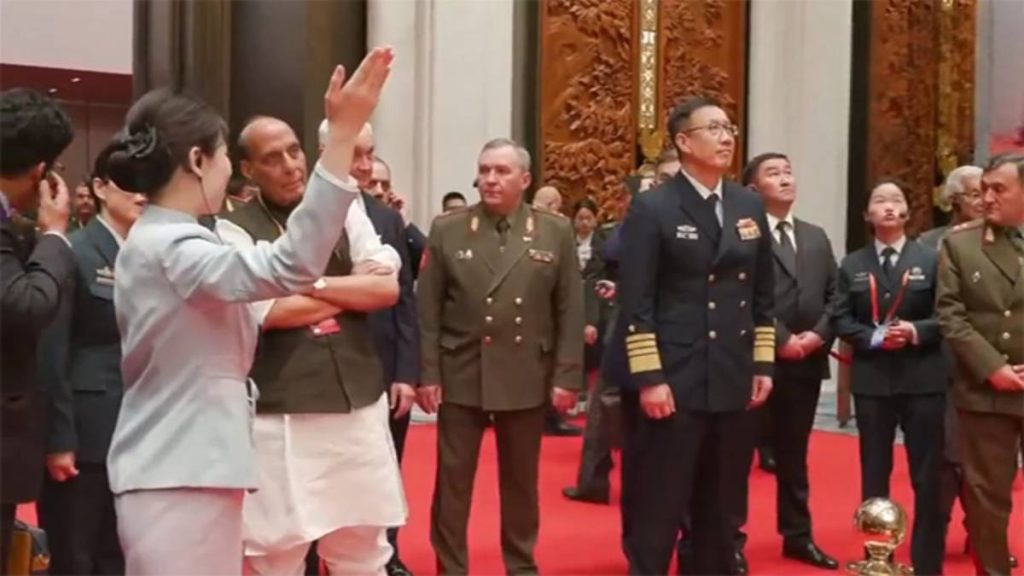India declined to sign the Shanghai Cooperation Organisation (SCO) joint declaration during the Defence Ministers’ meeting in Qingdao on Thursday, objecting to the document’s omission of the April 22 Pahalgam terror attack while referencing incidents in Pakistan, according to government sources.
Defence Minister Rajnath Singh, addressing the meeting, issued a strong call for unified, decisive action against terrorism, warning against double standards and cross-border terror policies — in an apparent reference to Pakistan.
“There should be no place for such double standards. SCO should not hesitate to criticise such nations,” Singh said.
He highlighted the Pahalgam attack in Jammu and Kashmir, where 26 civilians — including a Nepali national — were killed by ‘The Resistance Front’ (TRF), a proxy of UN-designated terror group Lashkar-e-Taiba (LeT). Singh pointed out that victims were targeted based on religious profiling.
In response to the attack, India launched Operation Sindoor on May 7, 2025, aimed at dismantling cross-border terror infrastructure.
Singh said terrorism and the proliferation of weapons of mass destruction (WMDs) by non-state actors are threats that must be tackled collectively: “Peace and prosperity cannot co-exist with terrorism… dealing with these challenges requires decisive action,” he said.
While Singh didn’t name Pakistan directly, he made a veiled reference, stating: “Those who sponsor, nurture and utilise terrorism for narrow and selfish ends must bear the consequences.”
He reaffirmed India’s zero tolerance for terrorism, defending its right to pre-empt and respond to threats. He also called for joint efforts to combat the misuse of drones and technology for cross-border arms and drug smuggling, cyber-attacks, and hybrid warfare.
India’s refusal to sign the declaration marks a significant diplomatic move within the 10-member SCO, which includes India, China, Russia, Pakistan, Iran, Belarus, Kazakhstan, Kyrgyzstan, Tajikistan, and Uzbekistan.
Singh concluded by urging respect for the SCO Charter’s principles — especially sovereignty and territorial integrity — and emphasized the need for enhanced regional cooperation and connectivity with Central Asia, while maintaining mutual trust.
